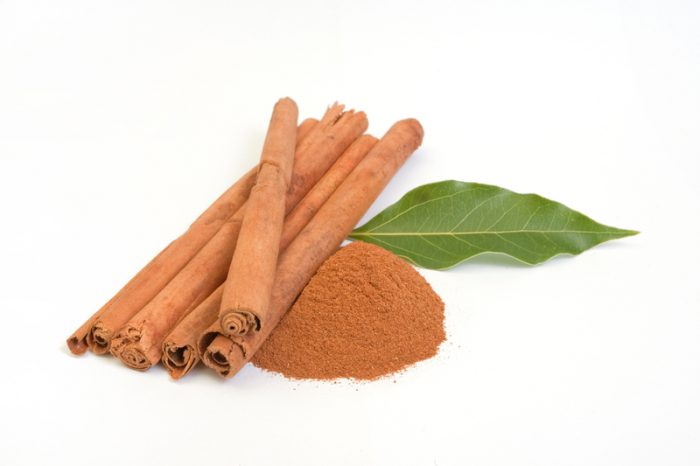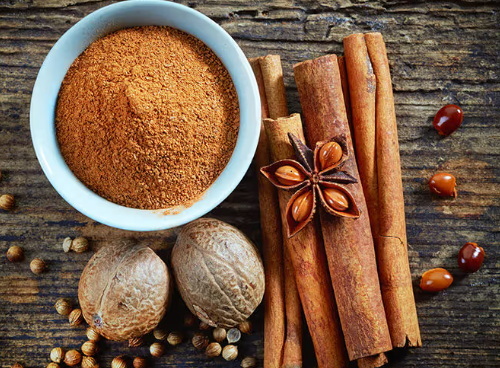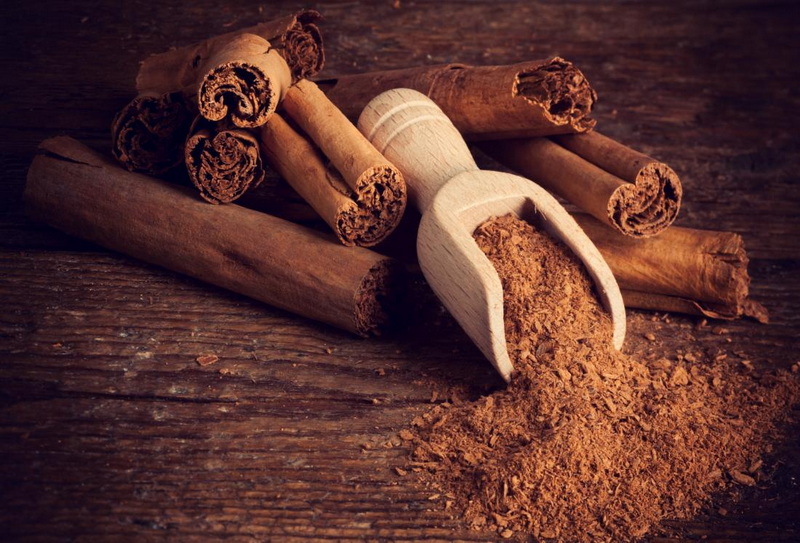Content Menu
● Introduction to Cinnamon Extract Bark
>> Benefits of Cinnamon Extract Bark
● Safety Considerations
● Precautions for Daily Consumption
● Additional Health Benefits and Uses
● Additional Information
● References
● Final Thoughts
● Conclusion
● FAQ
>> 1. What are the potential health benefits of cinnamon extract bark?
>> 2. Is cinnamon extract bark safe for pregnant or breastfeeding women?
>> 3. How much cinnamon extract bark can I safely consume daily?
>> 4. What is the difference between Ceylon and Cassia cinnamon?
>> 5. Can cinnamon extract bark interact with medications?
● Citations:
Cinnamon, derived from the bark of the Cinnamomum tree, has been a staple spice in many cuisines for centuries. Its warm, aromatic flavor and potential health benefits have made it a popular ingredient in both cooking and herbal medicine. However, the safety of consuming cinnamon extract bark daily is a topic of interest for many health-conscious individuals. This article will delve into the benefits, risks, and safety considerations of cinnamon extract bark for daily consumption.

Introduction to Cinnamon Extract Bark
Cinnamon extract bark is obtained from the bark of the Cinnamomum tree, primarily from two species: Cinnamomum verum (Ceylon cinnamon) and Cinnamomum cassia (Chinese cinnamon). The bark is rich in compounds like cinnamaldehyde, which is responsible for its distinctive flavor and aroma.
Benefits of Cinnamon Extract Bark
1. Antioxidant Properties: Cinnamon is rich in antioxidants, which help protect the body from oxidative stress and inflammation. These antioxidants can also act as natural preservatives in food preparation[1][2].
2. Anti-Inflammatory Effects: The antioxidants in cinnamon contribute to its anti-inflammatory properties, which may help in managing chronic diseases. This is particularly beneficial as chronic inflammation is involved in the progression of many age-related diseases[1][2].
3. Blood Sugar Management: Cinnamon has been studied for its potential to lower blood sugar levels in people with type 2 diabetes. It appears to manage glucose entry into the bloodstream and may improve insulin sensitivity[1][5].
4. Heart Health: It may help reduce cholesterol levels and improve heart health by lowering triglycerides and LDL cholesterol[2][5].
5. Antibacterial and Antifungal Properties: Cinnamon's essential oils have shown effectiveness against certain bacteria and fungi, including staphylococcus, E. coli, and candida[2][3].
6. Cancer Prevention: Some studies suggest that cinnamon can slow down angiogenesis, which is crucial for tumor growth, potentially aiding in cancer prevention[2].
7. Neuroprotective Effects: Cinnamon contains compounds that may inhibit the buildup of proteins associated with Alzheimer's disease, potentially benefiting cognitive health[1][4].
8. Digestive Health: Cinnamon may help restore the balance of gut bacteria, supporting digestive health and alleviating issues like irritable bowel syndrome (IBS)[1][3].
9. Dental Hygiene: Traditionally used as a tooth powder, cinnamon can help with dental hygiene by reducing bacterial overgrowth and bad breath[1].
Safety Considerations
While cinnamon is generally safe when consumed in food amounts, there are considerations for its use as a supplement:
1. Coumarin Content: Cassia cinnamon contains more coumarin than Ceylon cinnamon. High coumarin intake can be harmful, especially for the liver[5].
2. Pregnancy and Breastfeeding: There is limited information on the safety of consuming large amounts of cinnamon during pregnancy and breastfeeding.
3. Interactions with Medications: Cinnamon may interact with diabetes medications and affect blood sugar control.
4. Allergic Reactions: Some people may experience allergic reactions or digestive issues when consuming cinnamon in large amounts.

Precautions for Daily Consumption
- Dosage: The recommended daily dose for cinnamon supplements varies, but typically ranges from 0.5 to 3 grams. Some studies have used higher doses, but caution is advised due to potential toxicity[2][5].
- Type of Cinnamon: Choose Ceylon cinnamon for lower coumarin content.
- Consult a Healthcare Professional: Especially if you have underlying health conditions or are taking medications.
Additional Health Benefits and Uses
Cinnamon has been traditionally used for various health conditions, including:
- Premature Ejaculation: Some evidence suggests that a specific cream containing cinnamon may help prevent premature ejaculation[3].
- Hay Fever: Cinnamon bark extract has been used in products to reduce hay fever symptoms[3].
- Yeast Infections: Early research indicates that cinnamon lozenges may improve yeast infections in the mouth[3].
- Irritable Bowel Syndrome (IBS): Cinnamon bark, combined with other herbs, may help alleviate IBS symptoms[3].
- Food Poisoning: Cinnamon bark might aid in treating salmonella infections[3].
Additional Information
For those interested in incorporating cinnamon into their diet, here are some tips:
- Cinnamon in Cooking: Use cinnamon sticks or powder in baking, curries, and desserts to add flavor and aroma.
- Cinnamon Tea: Steep cinnamon sticks in hot water to make a soothing tea that can aid digestion.
- Cinnamon Supplements: Always choose high-quality supplements and follow the recommended dosage.
By understanding the benefits and risks of cinnamon extract bark, you can make informed decisions about its use in your daily life.
References
For further reading on the health benefits and uses of cinnamon, consider exploring the following resources:
- BBC Good Food: Provides an overview of cinnamon's health benefits and recipes.
- WebMD: Offers insights into cinnamon's health benefits and potential side effects.
- Examine.com: Details the benefits, dosage, and side effects of cinnamon supplements.
Final Thoughts
Cinnamon extract bark is a versatile spice with a range of health benefits, but it should be consumed responsibly. By choosing the right type of cinnamon and being mindful of potential interactions, you can safely enjoy its benefits.
Conclusion
Cinnamon extract bark can be a safe and beneficial addition to your diet when consumed in moderation and with awareness of its potential risks. It is crucial to choose the right type of cinnamon and consult healthcare professionals if you have specific health concerns.

FAQ
1. What are the potential health benefits of cinnamon extract bark?
Cinnamon extract bark offers several health benefits, including antioxidant and anti-inflammatory effects, potential blood sugar management, and heart health improvements. It also has antibacterial and antifungal properties.
2. Is cinnamon extract bark safe for pregnant or breastfeeding women?
While cinnamon is likely safe in food amounts, there is limited information on its safety in larger doses during pregnancy and breastfeeding. It is advisable to consult a healthcare provider before using it as a supplement.
3. How much cinnamon extract bark can I safely consume daily?
The recommended daily dose for cinnamon supplements typically ranges from 0.5 to 3 grams. However, it is important to consult with a healthcare professional, especially if you have specific health conditions.
4. What is the difference between Ceylon and Cassia cinnamon?
Ceylon cinnamon (Cinnamomum verum) has lower coumarin levels compared to Cassia cinnamon (Cinnamomum cassia), making it a safer choice for regular consumption.
5. Can cinnamon extract bark interact with medications?
Yes, cinnamon may interact with diabetes medications and affect blood sugar control. It is important to monitor your blood sugar levels and consult a healthcare provider if you are taking any medications.
Citations:
[1] https://www.bbcgoodfood.com/health/nutrition/health-benefits-cinnamon/
[2] https://www.webmd.com/diet/supplement-guide-cinnamon
[3] https://www.rxlist.com/supplements/cinnamon_bark.htm
[4] https://pmc.ncbi.nlm.nih.gov/articles/PMC4003790/
[5] https://examine.com/supplements/cinnamon/
[6] https://www.healthline.com/nutrition/10-proven-benefits-of-cinnamon
[7] https://www.medicalnewstoday.com/articles/266069
[8] https://www.mdpi.com/1999-4907/12/5/648






























